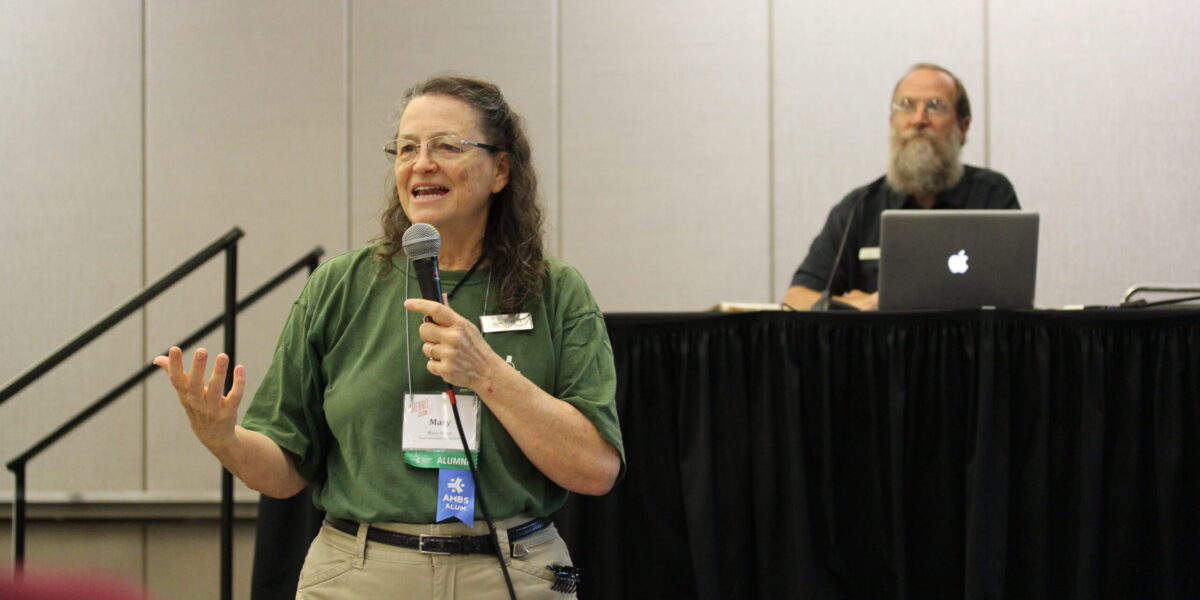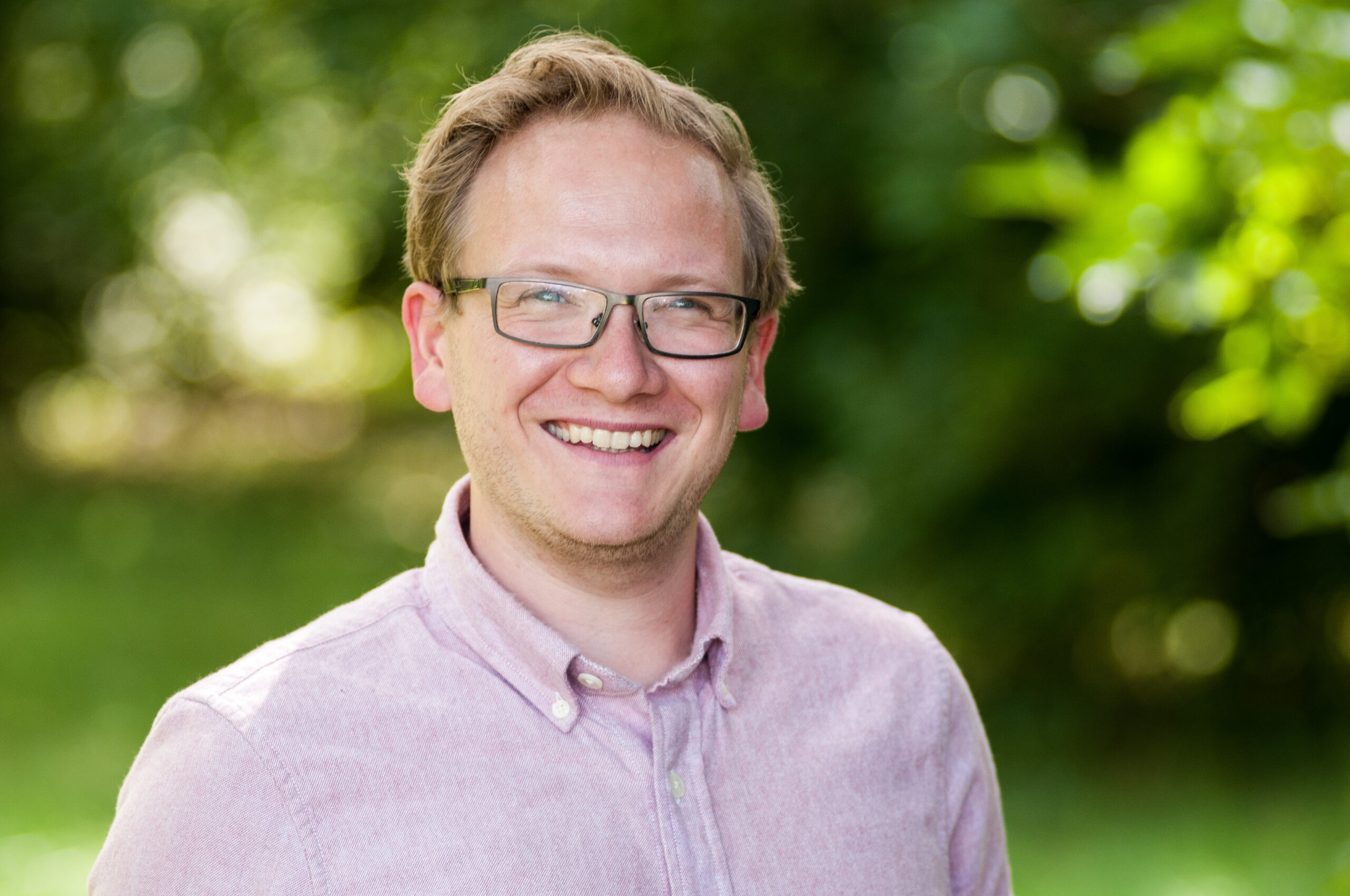KANSAS CITY (Mennonite Mission Network) – The 2019 Mennonite Church USA convention brought Mennonite Mission Network workers and partners from across the globe to Kansas City. Throughout convention week they fostered friendships both old and new at the Mission Network exhibit booth, shared stories and updates with their supporting congregations, and hosted seminars and workshops. Below are quick snapshots of two Mission Network partner-led seminars.
Anger and forgiveness: gifts to share
Mark and Mary Hurst led the seminar "Anger and forgiveness: gifts to share" on Thursday, July 4. The Hursts have served as resource people and pastors with the Anabaptist Association of Australia and New Zealand (AAANZ) since 1990. Through their nearly 30 years of service, Mark and Mary have worked to build Anabaptist networks, lead conflict transformation workshops, and cultivate community.
While anger and forgiveness might seem to occupy opposite ends of the emotional spectrum, the Hursts consider them tools that can work, and do good, together.
In their seminar, Mark pointed to Ephesians 4:25-32 as an example of Paul calling to the Ephesians to both get angry and let go of their anger through forgiveness, a confusing request if one relies only on the English translation of the text. Leaning on the teachings of Tom Yoder Neufeld, professor emeritus at Conrad Grebel University College and delegate session facilitator at the conference, Mark proposed that Paul advocated for shifting anger from a personal emotion to the cause itself. "What injustice or falsehood needs to be addressed?" he asked the attendees. The list of righteous anger sources suggested by the audience was long. Oppression. Abuse. Silence in the face of injustice.
"There are situations in the world where we have every right to be angry. I go to God about that," said Mary, who along with Mark, have helped organize civil disobedience protests in Australia. "I pull weeds as well," she added with a smile.
In helping seminar attendees redefine anger, the Hursts also encouraged viewing forgiveness in a new light. "Forgiveness is not for the other person," said Mary. "It’s for the person who was hurt to heal." The couple laid out steps for forgiveness, stressing that it can be a lengthy, complex process – not a singular act.
"Some of our best opportunities to share faith have come out of talking about these practical steps [for forgiveness]," explained Mark. "People will say, ‘Where did you learn this?’ and for us, it’s the whole theme of being alternative, being attractive, and then when people ask, being articulate about your faith."
Post-modern worship that crosses barriers
Alisha and Joshua Garber led the seminar "Post-modern worship that crosses barriers" on Thursday, July 4.
Alisha and Joshua, along with their son, Asher, serve in
Barcelona, Catalonia (a region where allegiance to Spain vies with voices
calling for independence).
Since 2017, they have worked with the leaders of Comunidad Evangélica Menonita in Barcelona, focusing on congregational mission and youth outreach to the local community.
As attendees filtered into the meeting room and shook off the light rain of a slate gray Kansas City afternoon, the Garbers opened their seminar with a game of "Name that tune."
The setup for the game was simple. Alisha Garber read off two song titles: one contemporary worship tune and the other a secular, chart-topping hit. It was up to the audience to determine the year that both songs were released. "Shout to the Lord" and "I Will Always Love You" by Whitney Houston shared a release date of 1994. "I Can Only Imagine," by Mercy Me and "No Scrubs" by TLC in 1999. "Oceans," a song that was sung at convention worship earlier in the day, was released in 2013, the same year as "Wrecking Ball" by Miley Cyrus.
The point, the Garbers explained, was that for many people in and outside of the church, "contemporary" worship music can sound anything but, especially compared to recent popular songs and sounds.
"In a post-modern world, we should be constantly adapting and contextualizing things to fit and have meaning in the context we’re in," said Alisha. For her and Joshua, they’ve worked at adapting worship music into the contexts of communities in Phoenix, Lithuania, and now in Barcelona.
"We simply wanted to make worship where we could enjoy every song equally and feel that all the songs belonged in the same set of music," explained Joshua.
The desire to contextualize worship music most recently led them to retranslate worship songs for their church community in Barcelona, or as the Garbers describe it, "rebaptizing songs with an Anabaptist theology."
"We’re trying to make space for more people to feel comfortable," said Joshua. "When the song we’re playing is not the song you connect with, rejoice and know that the person next to you might be having a profound experience."








